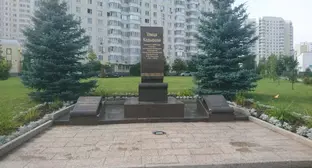04 May 2020, 15:51
Week in the Caucasus: review of main events of April 27-May 3, 2020
Attack of the coronavirus infection on Caucasus; trials against participants of a protest rally in Vladikavkaz; condemnation by human rights defenders of the Azerbaijani authorities for abuse of the situation with the coronavirus infection; Revival Day of Karachay People amid the pandemic; death of Stavropol administration chief Andrei Djatdoev, – see the review of these and other events in the Caucasus during the week of April 27-May 3, 2020, prepared by the "Caucasian Knot".
Attack of coronavirus infection on Caucasus
Over the past week, the number of coronavirus-infected people was still growing in the countries of Southern Caucasus and in the regions of Southern Russia. By the evening on May 3, in Georgia, the number of people infected with coronavirus reached 589 (104 new cases over the week), in Azerbaijan – 1932 (287 new cases over the week), in Armenia – 2386 (640 new cases over the week), Abkhazia – 3 (0 new cases over the week), in Nagorno-Karabakh – 8 (0 new case over the week). The coronavirus death toll is also growing. Georgia has already registered 9 deaths, Azerbaijan – 25, and Armenia – 35, and Abkhazia – 1 (as at 8:00 p.m. Moscow time on May 3).
Meanwhile, in the countries of Southern Caucasus, the authorities began to mitigate the quarantine measures. So, on April 27, in Azerbaijan, shops and a number of service sector enterprises have resumed their operation. After the resumption of the Baku metro operation, passengers will have to wear protective masks, the authorities have announced. Starting from April 27, in Georgia, residents are allowed to resume their trips by cars and taxis, and restrictions, earlier imposed on online shops and food delivery, are lifted. The operation of agricultural markets was also allowed. However, most of the markets did not resume their work, since they failed to fulfil the conditions under which trading was allowed during the pandemic. On April 28, in Armenia, the authorities decided to mitigate the current state of emergency in the country. According to Prime Minister Nikol Pashinyan, within ten days, the restrictions on the economic activities will be first minimized and then lifted. Furthermore, residents of Armenia are allowed to go for walks up to one kilometre from their place of residence.
The number of coronavirus-infected people is also increasing in regions of Southern Russia. By the evening on April 26, it was reported about 5367 people infected with coronavirus in all the regions of Southern Russia, and by the evening on May 3, the total number of people infected with that dangerous infection reached 9817 (4450 new cases over the week). Dagestan leads in the number of coronavirus-infected people (1798). In the Krasnodar Territory, 1244 patients were diagnosed with the coronavirus infection, in the Rostov Region – 1178, in North Ossetia – 990, in Ingushetia – 865, in the Stavropol Territory – 713, in Kabardino-Balkaria – 634, in Chechnya – 553, in the Astrakhan Region – 487, in the Volgograd Region – 474, in Karachay-Cherkessia – 430, in Kalmykia – 283, and in Adygea – 168. The COVID-19 death toll also increased significantly over the week: from 76 to 125. The highest death toll – 25 patients – was registered in Ingushetia. 20 deaths were registered in the Krasnodar Territory, 15 – in the Stavropol Territory, 13 – in Dagestan, 10 – in the Volgograd Region, 9 – in the Rostov Region, 8 – in Chechnya, 6 – in Adygea, 6 – in North Ossetia, 5 – in Kalmykia, 4 – in the Astrakhan Region, 2 – in Kabardino-Balkaria, and 2 – in Karachay-Cherkessia (as at 8:00 p.m. Moscow time on May 3).
In Southern Russia, the regional authorities extended until May 11 the restrictive measures imposed earlier. A number of regions, in particular, Kabardino-Balkaria, the Krasnodar Territory, and the Rostov Region, have obliged residents to wear medical masks in public places. Chechnya stopped the operation of public urban transport till May 11, and that fact provoked a negative reaction from local residents. In Dagestan, where the largest increase in the number of coronavirus-infected people was registered in Northern Caucasus, law enforcers intensified inspections on road and began to block the entrances to the capital of the republic, thus causing large traffic jams.
Trials against participants of protest rally in Vladikavkaz
Last week, in Vladikavkaz, the court continued trials in cases instituted against participants of a protest rally against the regime of self-isolation, held on April 20. Let us remind you that law enforcers dispersed several hundred opponents of the self-isolation regime from Freedom Square in Vladikavkaz. The protestors demanded the resignation of the government, the parliament, and the leader of North Ossetia. The police reported about 13 injured fighters of the National Guard of Russia and the Ministry of Internal Affairs (MIA) and about 69 detainees. By April 27, 41 protesters were fined or placed under administrative arrests. By May 1, in North Ossetia, the courts pronounced 64 decisions on fines and administrative arrests of the activists. The number of protestors against whom cases were instituted included Arsen Besolov. He administrated a Telegram chat, created for communication of supporters of Vadim Cheldiev, an initiator of the unsanctioned rally in protest against the self-isolation regime. The court found Arsen Besolov to be an organizer of the protest action in Vladikavkaz. On May 2, it became known that six protesters had been arrested on charges of disorderly conduct associated with resistance to a public officer. Investigators claim that the protestors were throwing stones at law enforcers.
Condemnation by human rights defenders of Azerbaijani authorities for abuse of situation with coronavirus infection
On April 28, the "Amnesty International" (AI) released the report "Former USSR countries abuse repressive measures in fight against COVID-19". In its report, the AI mentioned Azerbaijan among the countries using restrictions imposed during the pandemic to repress government opponents. The AI's report notes the prosecution of users of social networks, journalists and health workers, who openly pointed out flaws in the response to the spread of the coronavirus infection. The human rights defenders also mentioned an appeal to the people of Azerbaijani President Ilham Aliev in which he "announced new rules" for the duration of the COVID-19 pandemic, including "isolating" and "clearing" the Azerbaijan's already fragmented political opposition. High-profile arrests of political and civil rights activists under spurious charges have followed the president's pronouncement, including the arrest of opposition activist Tofig Yagublu and human rights defender Elchin Mamed, the AI notes.
Revival Day of Karachay People amid pandemic
On May 3, residents of Karachay-Cherkessia paid tribute to the memory of victims of Karachay deportation. Rallies and processions usually took place on the Revival Day of Karachay People. However, this year, no mass events were held because of the quarantine regime imposed in connection with the coronavirus infection spread. Together with officials, Rashid Temrezov, the leader of Karachay-Cherkessia, visited the Memorial to the victims of repressions in the city of Karachayevsk, and local residents participated in the memorial action through social networks. The people shared the stories about their relatives who survived the deportation.
Death of Stavropol administration chief Andrei Djatdoev
On April 30, Andrei Djatdoev, who had been heading the City Mayoralty of Stavropol since 2016, died. He was 57 years old. The death of Andrei Djatdoev was reported by Vladimir Vladimirov, Governor of the Stavropol Territory. According to sources, Andrei Djatdoev suffered from cardiovascular inefficiency, and his death was sudden. On May 2, Andrei Djatdoev was buried in the city cemetery in Stavropol.
This article was originally published on the Russian page of 24/7 Internet agency ‘Caucasian Knot’ on May 4, 2020 at 09:10 am MSK. To access the full text of the article, click here.




